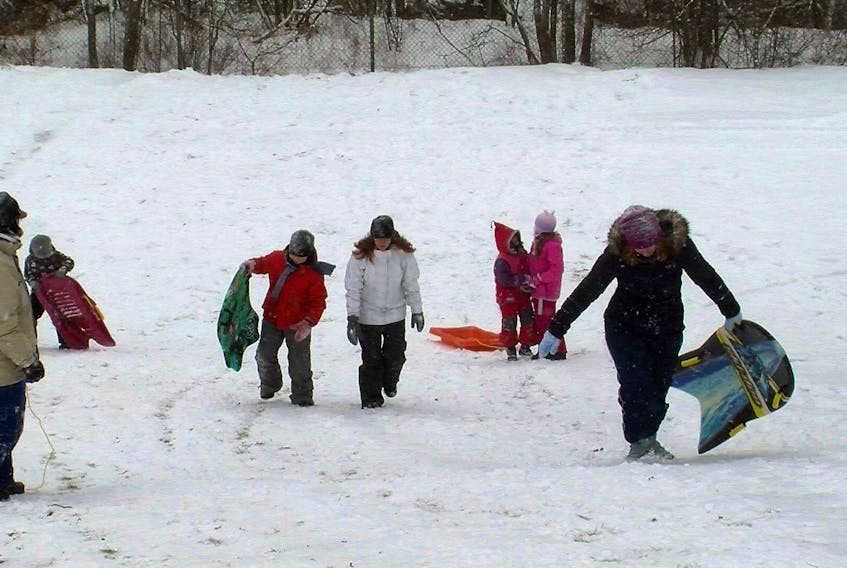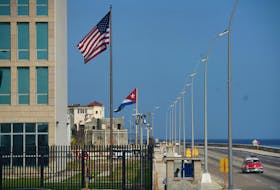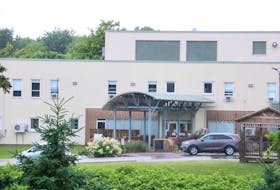ROBERT MARCHAND
I read with interest Paul W. Bennett’s online opinion piece on Feb. 16 about the scourge of snow days that our province must endure each year, and I must say that I think he has somewhat missed the mark.
When I was a school principal, my No. 1 concern was keeping my students and staff safe. It is an intimidating responsibility, and one I didn’t take lightly. I’m sure that those who make the difficult decision whether to close or not feel the same weight of responsibility. I also know that many factors go into this decision, and so a comparison between Nova Scotia and Winnipeg is a mug’s game at best. We need to make decisions based upon our unique circumstances and the weather forecasts that we receive.
An argument that states that the weather wasn’t as bad as predicted is akin to saying that I’ve been a fool for paying for homeowner’s insurance that I never had to use. Decisions are made on the basis of what you know at the time, not on hindsight, as tempting as that may be.
Like everyone else, I have the luxury of second-guessing the bus company and the education department from the comfort of my Halifax home, and I do. But I also have humility to know that perspective is very limited. There may, in fact, be more snow days called than are necessary, but I wouldn’t know. What I do know is that those charged with making this very difficult decision have no incentive to get it wrong.
But clearly, they do get it wrong on occasion, when the weather is not as severe as forecasted, and no one likes to see instructional time affected unnecessarily.
By Bennett’s reckoning, Nova Scotia schools have closed anywhere from zero to more than a dozen times in recent years. That’s a good number of days missed, but there are a host of solutions to solve this perceived crisis, from the complex and difficult, like classes being conducted over internet connections on a snow day, to the simple and more mundane such as just making the school year or school day slightly longer. If this is a crisis, it’s one we can easily manage.
Ironically, it could be the case that deciding not to close schools may in fact hurt student learning. A day in which a school is technically open but a large number of students can’t attend is actually worse than closing the school for the day, even for those students who make it to school.
A 2012 study by Harvard public policy professor Joshua Goodman compared these two scenarios and concluded that, in fact, keeping schools open during a storm does more harm to student learning than closing them.
It sounds counterintuitive, but makes sense if you understand how schools work at the classroom level in both scenarios.
Goodman writes, “With slack time in the schedule, the time lost to closure can be regained. Student absences, however, force teachers to expend time getting students on the same page as their classmates.”
So, the disruption caused by a few absent students is more counterproductive than everyone taking a day off. A school closure for a storm day would be better described as lessons being deferred for 24 hours. No one is left behind; we simply pick up where we left off.
Despite my willingness to go down this rabbit hole about school snow days, my overall opinion is that the seriousness of the issue is often overstated and that we should spend less time rearranging deck chairs on the Nova Scotian educational ship and more time on the substantive issues that need our attention — issues that are having an impact on the days in which school is actually in session. The only thing more vexing than overblown weather reports are overblown reactions to them.
When I used to coach junior high soccer, I’d tell my students to ignore the referee’s occasional bad call. The referee’s calls are like the weather, I’d tell them. Sometimes they’re good, and sometimes they’re not, but you shouldn’t let that divert your energy away from playing the game as well as you can.
Cancelling school due to very bad weather will always be something we have to deal with in this part of the world, but it’s hardly a crisis. And making it one diverts our attention from the things that really matter. Take the snow day, make your arrangements, and try to find a small bit of delight in an unexpected day off from our predictable routine. And then the next morning, let’s get back to the hard work of making our educational system even better than it was the day before the storm arrived.
Robert Marchand of Halifax is the lead consultant with Guiding Principals Educational Consulting and has more than 30 years’ experience in teaching and school administration. More of his work can be found at www.guidingprincipals.ca









